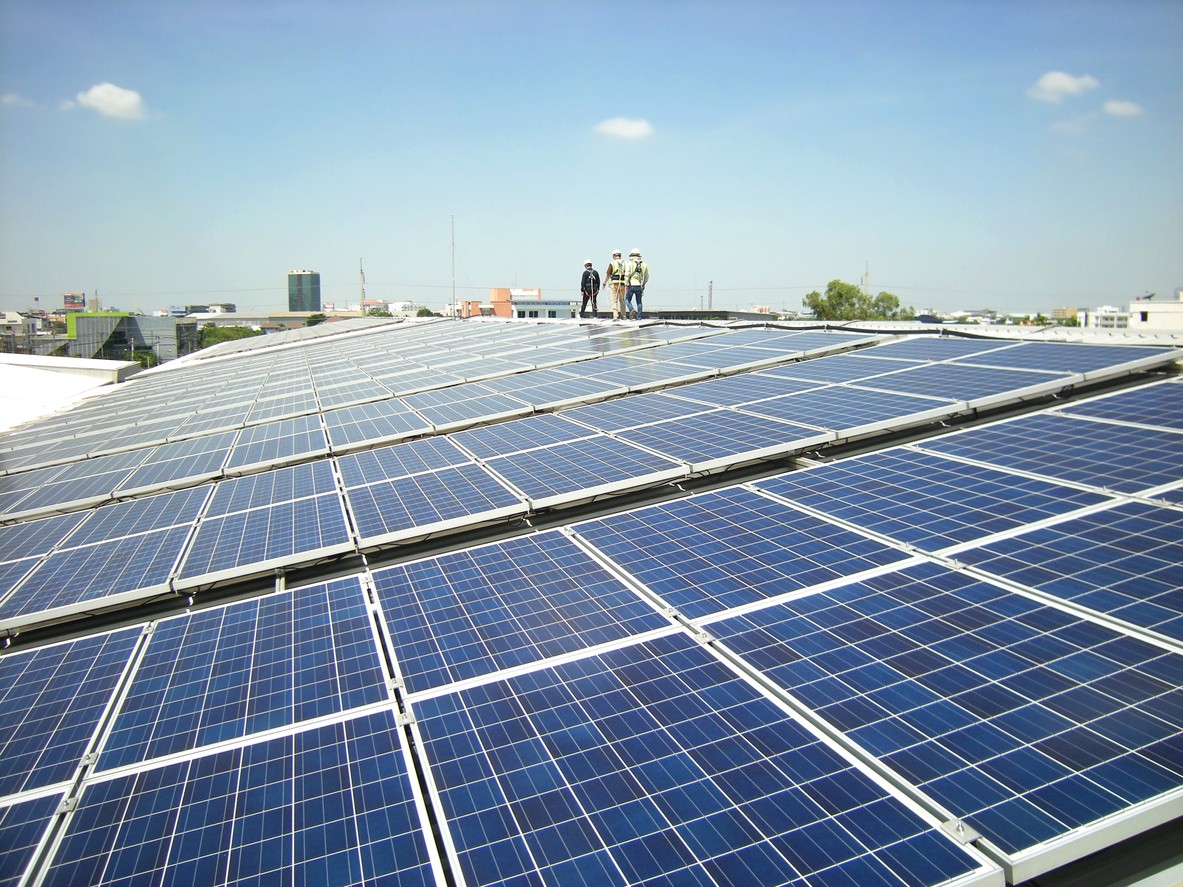
Solar panels can be expensive, despite the federal tax credit and additional rebates or incentives that might reduce the cost. Solar panels, however, can more than pay for themselves, given that they are made to last for several decades.
It is crucial to consider the typical lifespan of solar panels when researching this renewable energy source. According to the standards, the typical solar panel lifespan is between twenty-five and thirty years. The majority of reliable manufacturers provide 25-year or more extended production warranties.
Solar panels often reach their break-even point six to ten years after installation in terms of energy savings. You will save thousands of dollars during the commercial solar panels’ lifespan if they continue to produce at a high rate for a further fifteen years.
How Long Do Commercial Solar Panels Last?
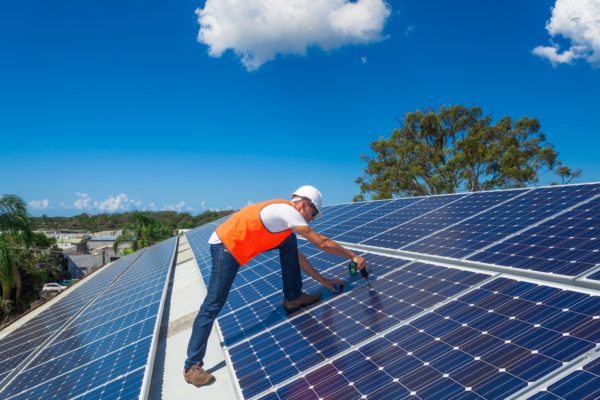
Solar panels are becoming a more widely used method of supplying electricity due to rising energy costs and a growing desire to lessen our carbon footprint and environmental impact. The newest solar panel models currently available on the market are anticipated to last 40 to 50 years.
Solar panels can still produce solar energy after that, albeit less effectively than when they were first installed. A solar panel seldom stops providing electricity entirely, but with time, the degradation rate may become so great that you should completely replace the panels.
Many manufacturers provide shorter guarantees on the associated equipment and solar panel production warranties. This can assist in repairing damage brought on by unforeseen weather conditions, falling branches, etc. Solar panel warranties do not apply to solar panel racking systems. These could sustain weather-related damage.
The warranties guarantee the solar panels’ performance levels over the first half of their lives. Most warranties promise that the performance won’t fall below 80% before the warranty expires. In fact, even after their lives have ended, some panels have been reported to maintain an efficiency of over 80%.
Your solar panels may survive more than 40 years if you properly care for them after installation. But it is important to keep in mind that their performance levels will slightly decline over that time.
Both monocrystalline and polycrystalline solar panels have a half-century life expectancy. Thin film is excluded since we do not know how long it will likely last; hence, their guarantees are also frequently shorter. Remember that a solar PV system‘s lifespan should never be impacted by size or wattage.
Commercial Solar Panel Degradation
Throughout their lifetime, solar panel systems will exhibit a decreased capacity to collect sunlight and convert it to solar energy. However, it takes a long time for this gradual decrease in effectiveness to happen. Hot temperatures and the panels’ innate decline in chemical potency, or “degradation rate,” are two factors that contribute to this.
According to National Renewable Energy Laboratory (NREL) research, the typical solar panel loses 0.8% of its output annually. Premium producers, like SunPower, provide panels with degradation rates as low as 0.3%, which means that their panels will last a lot longer than those from most other producers. Therefore, the degradation rate is essential to consider when comparing solar panels as part of your pre-purchase research.
Factors that Impact Commercial Solar Panel Degradation Rate and Lifespan
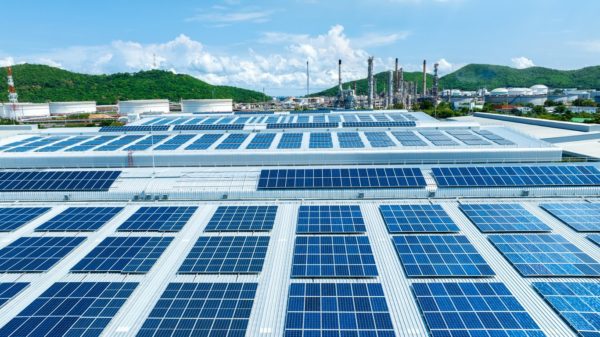
Extreme weather and climatic conditions, for example, are outside of your control and can shorten the lifespan of solar panels. However, there are techniques to lengthen the lifespan of your solar panels.
Weather
The weather significantly influences the durability of solar panels.
Tree branches may fall during a strong windstorm, perhaps harming the solar panels’ anti-reflective glass covering. Large hailstones can scratch glass, whereas heavy snowfall may contribute to a loss in structural integrity. It causes the panels to degrade more quickly.
But most manufacturers test and certify solar panels to resist storms and other bad weather.
Installation
Due to their endurance, solar panels are typically not prone to flaws. However, you should exercise extra caution when initially connecting and installing panels. When arranging solar panel arrays, solar engineers must consider the connecting system as well as the state of a roof.
If a roof installer fails to correctly identify any problems, an old, leaky, or damaged roof could lead to significant issues in the future. Before starting any work on your place of business, be sure to do your research and choose a reputable installation.
By working with an expert contractor to install your solar panels, you can be sure that the racking will sustain the solar panels over time. Your solar panels could age more quickly if they are not properly wired and fitted. Most top solar providers also provide regular maintenance checks to guarantee that the system is functioning properly and to identify any concerns before they become more serious.
Maintenance
Aside from the potential for savings and environmental benefits, one of the key advantages of solar panels is that they require relatively little maintenance. However, if you want to lengthen the lifespan of your solar panels, taking care of them can be helpful. For instance, debris accumulating on solar panels can cause them to shatter by scratching, peeling, and obscuring the sun’s light. To avoid situations like this, it’s a good idea to frequently clean your solar panels or use solar panel critter protectors.
Quality
The breakdown of solar panel Tiers demonstrates how the quality of your panels affects production over the long term significantly. Examine the production warranty the manufacturer is providing for a hint as to the output quality you can anticipate. Businesses ready to stick by their products for a long time—and that’s excellent news for you—offer 25 years or more.
Tips for Increasing Your Solar Panels Lifespan
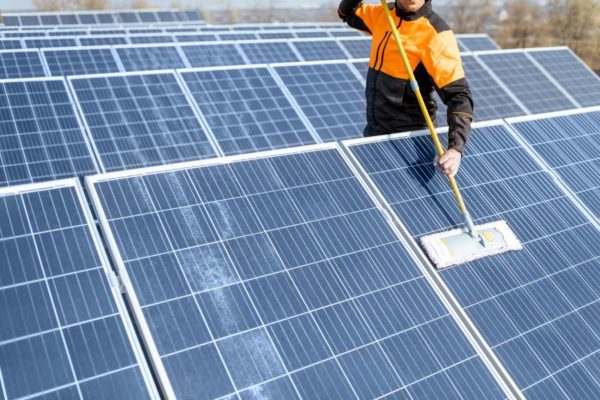
Solar panels have an average lifespan of almost three decades, making them incredibly robust. The manufacturers thoroughly test them to survive severe weather, including strong winds, snow, and even hail. Additionally, since solar panel systems often don’t have moving parts, they don’t need regular maintenance.
The long lifespan of solar panels is a result of all of these variables. Here are a few strategies to ensure your solar panels continue functioning effectively for as long as feasible.
1. Ensure Upkeep and Cleaning
The ability of solar panels to absorb sunlight and subsequently function is inversely correlated with their cleanliness. Some solar panels need to be cleaned every week, while others only need to be cleaned every two months. Where you live determines how frequently you should clean your solar panels.
2. Hire a Reputable Commercial Solar Panel and Premium Quality Equipment
The first step in creating a long-lasting solar energy system is installing it. Working with a trustworthy installer who provides excellent customer service and a labor warranty is the best way to keep your solar panels operating for the long term. As mentioned, getting high-quality solar panels with strong warranties is crucial to preserve your solar investment. You should make sure the maker of your solar panels ensures that they won’t have any flaws and will work effectively for a very long time.
3. Get Regular Servicing and Maintenance
Ensure your installer or operations and maintenance (O&M) provider routinely inspects your solar panel installation to ensure your solar panels survive a long time. Regular maintenance inspections can spot potential problems such as exposed wiring, unsecured racking, and more. If you wind up scratching or otherwise harming the panels on your roof, you risk voiding the guarantee on those panels. Thus it’s crucial to have a professional checkup on your panels rather than doing it yourself.
When Should You Consider Replacing Solar Panels
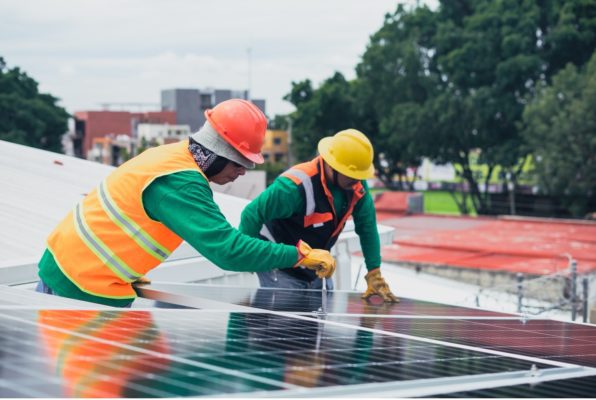
The main indication that it’s time to replace your solar panels is when their output is insufficient to pay for your electricity bill. Remember that in recent years, the rate of depreciation of solar panels has improved. If you have an older model, it might have deteriorated more quickly than usual for the industry.
You can track the amount of electricity your panels produce with a physical tracker or an app, which can help you figure out how quickly they are deteriorating. Even if the production is lower than before, it might be a good idea to start saving up for new solar panels in the future, even though it may not be necessary to do so just yet.
Most properties don’t invest in solar panels carelessly because they represent a considerable financial outlay. You may extend the useful life of your solar panels by researching their lifespan and following some easy maintenance procedures.
Contact Coldwell Solar for Your Commercial Solar Solutions
Going solar can reduce power costs and is a financial investment in the earth’s future. By doing extensive research on solar equipment manufacturers and partnering with a solar installation that offers the required products, you can ensure that your solar panel system is as sustainable as possible. Get in touch with Coldwell Solar for further information and excellent commercial solar services.

